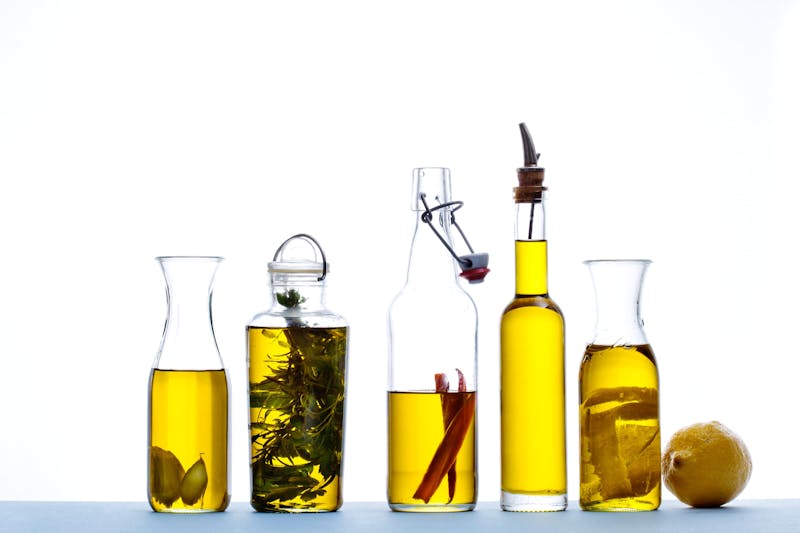Should olive oil replace all fats?

I love olive oil. I put it on my salads, my steamed and roasted veggies, and I even put it on my steak before I grill it. Studies such as the PREDIMED study suggest olive oil is a healthy fat that may have health benefits such as reduced cardiovascular risk.
Now, a new nutritional epidemiology study supports this evidence and goes even further, suggesting we should replace other forms of fat with olive oil. Does the science back this recommendation?
The recent paper published in Journal of the American College of Cardiology looked back at data from the Nurse’s Health Study and Health Professionals Follow-up Study. Participants filled out food frequency questionnaires every four years. The authors crunched the data and found a small, 14% reduction in cardiovascular events for those who consumed the most olive oil compared to those who consumed the least.
As with all observational studies, healthy user bias makes the data difficult to interpret, as the heavy olive oil users were also more likely to be physically active, less likely to smoke, and more likely to take a multivitamin (often a sign of increased concern for one’s health).
So, we can conclude that those who ate more olive oil were healthier in general and had slightly better cardiovascular outcomes. Therefore, it is unlikely that olive oil was harmful, and possible it was helpful. Combining this data with the PREDIMED study and other observational trials seems to support uses olive oil as a component of a healthy diet.
But the authors didn’t stop there. They further concluded:
In addition, it was estimated that compared with margarine, butter, mayonnaise, and dairy fat, olive oil was associated with lower risk of cardiovascular disease (CVD) and coronary heart disease, whereas when compared with other plant oils combined, olive oil was not associated with CVD.
Unfortunately, the bias is overt in this statement. Notice how the authors include butter along with margarine, mayonnaise and dairy fat. Looking at the data, the findings on butter were not significant (the confidence interval crossed 1.0 meaning there was no significant finding). In other words, there was no evidence that those who ate more butter had an increased risk compared to those who ate olive oil. But that is not what the authors reported.
What about dairy and mayo? The difference was between 5% and 7%. Differences that are this small in epidemiology studies are essentially meaningless. But that didn’t stop the authors from concluding:
The present work generates new evidence suggesting that replacement of more saturated fats, such as butter and margarine, with healthy plant-based fats, like olive oil, is beneficial for the primary prevention of CVD.
Unfortunately, this appears to be another example of data mining and twisting the conclusions to fit a preexisting bias. More accurate conclusions from this study are:
- Those who ate more olive oil had better outcomes than those who ate less, although we have no idea if they olive oil made the difference or if they were simply healthier and made better health decisions overall.
- There was no difference between those who ate more olive oil and those who ate more butter.
- There was a miniscule difference that is likely not clinically meaningful between those who ate more olive oil and those who are more dairy fat or mayonnaise.
We won’t see those conclusions in the tweets and headlines. But here at Diet Doctor, we will continue to emphasize the quality of science and help you reach meaningful conclusions so you can more accurately assess how study results influence you and your healthy eating decisions.
Thanks for reading,
Bret Scher, MD FACC
Earlier
Vegetable oils: are they healthy?
Expert panel agrees – limits to saturated fat are not evidence-based
Start your FREE 7-day trial!
Get delicious recipes, amazing meal plans, video courses, health guides, and weight loss advice from doctors, dietitians, and other experts.
Start free trial